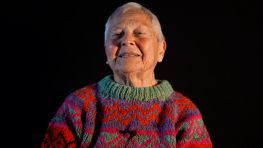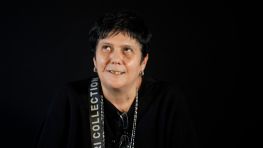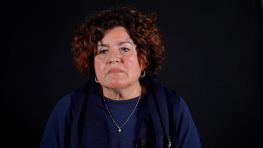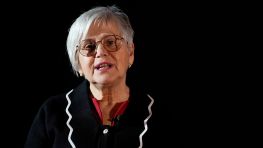 A life for others
A life for others Gianni Peteani
Proudly son of those who fought for Freedom
In this interview Gianni Peteani, son of Ondina Peteani, tells us about his mother's life after his release from the Auschwitz concentration camp. It tells the beginning of the obstetric profession and the motivations for which she embarked on this career and subsequently the evolution of Ondina's working life. Gianni makes us share in the reflections, works and important meetings of his life as the son of survivors of deportees.
Video table of contents
- Presentation by Ondina Peteani
- Women's welfare network
- Discovery of ondine infertility condition and choice to proceed with adoption
- Difficulty in choosing the child to adopt
- Growing up in the Peteani family
- Ondina-midwife
- Establishment of the "Ho Chi Minh" club
- Ondina-booksellery
- The phase of ondina's first depression and work at the Pensioners' Union
- The earthquake in Friuli Venezia Giulia
- The phase of the second depression, the hospitalization and the death of Ondina
- Works concerning the life of Ondina
- Historical context and motivation ondina's professional choice
- Stories of Freedom
- The Two Survivors
- Gianni's awareness and the meeting with Liliana Segre
- The Sorrows of Ondina
- Gianni's insights into Ondina's life and proposal of the conference "Living with Auschwitz"
- Conclusions
Interview information
Country: IT
Region: Piemonte
City: Torino
Gianni Peteani
Date of birth: 06-23-1959
City: Trieste
School: High school or Secondary
Profession: Nurse
Languages: italiano
Document by: Giulia Beltrame Vriz, Rudy Bin, Rossella D’Aloi, Sara Loro, Debora Marenco, Giacomo Patrizio.
Video by: Giulia Beltrame Vriz, Rudy Bin
Created: 04-11-2019
Questo video fa parte del seguente archivio
Knowledge of healing
Knowledge of healing
The archive “knowledge of Healing” was created with the aim of giving space to the narration of the places of healing from a particular point of view: that of the patients and the medical staff. A point of view which differs from the statistical one that official relations use to describe the medical field. This is how we find new stories about how throughout time the relationship between patients and medical staff has changed, how knowledge has helped to bring change by offering the chance to critically revisit the training methods nowadays used.






